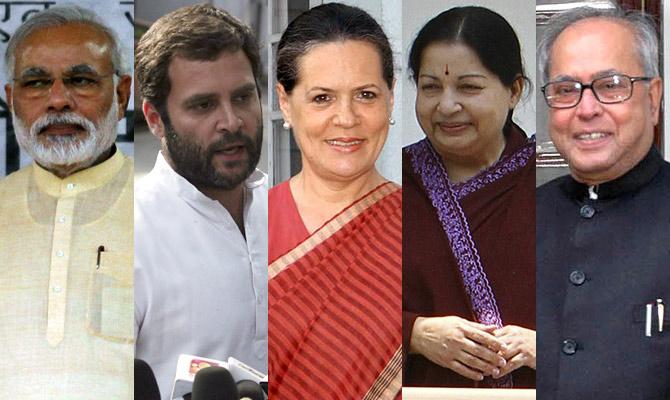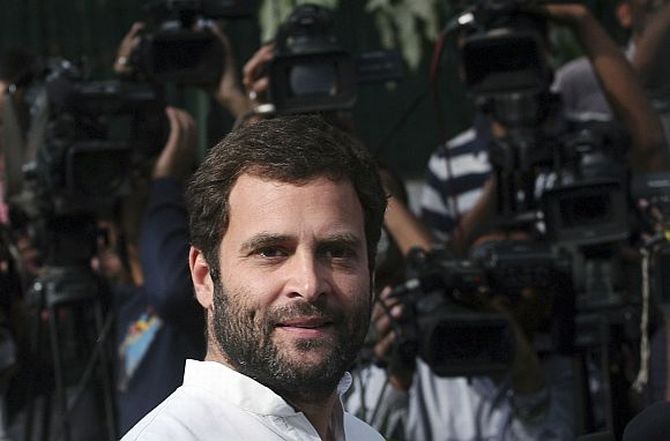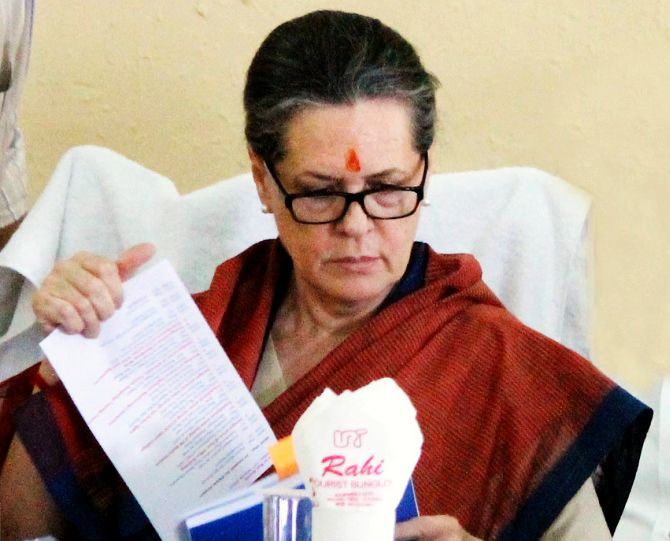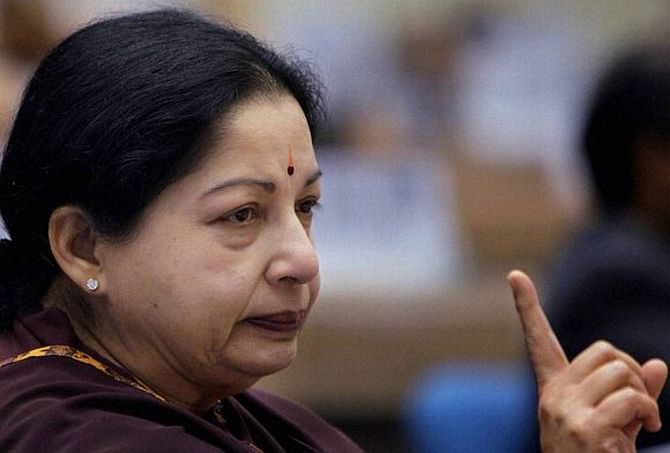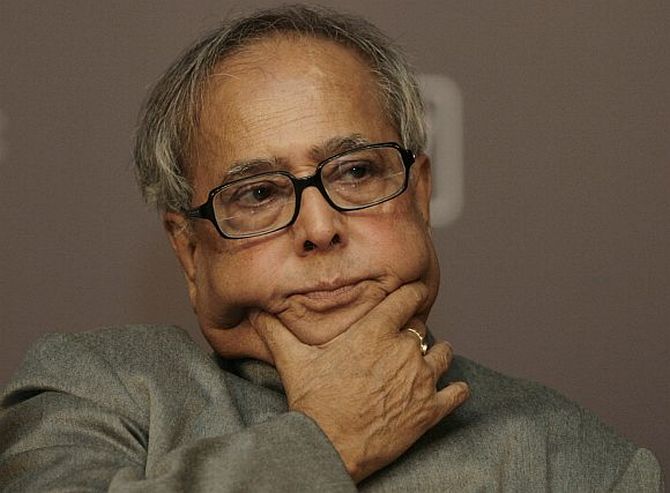 | « Back to article | Print this article |
The FIVE key spokes in the 2014 political wheel
A country in which all general elections are unique, 2014 polls promises to top the list. In 2014, India’s political story will be told by five people -- Narendra Modi, Rahul Gandhi, Sonia Gandhi, J Jayalalithaa and Pranab Mukherjee, notes Aditi Phadnis.
1. Narendra Modi
Narendra Modi, the chief minister of Gujarat and Bharatiya Janata Party’s prime ministerial candidate, is the undisputed star of the show. Some may not like him (some fear him), but he can’t be ignored. From January next year, Modi is expected to spell out his world vision. He will be heard commenting on the economy and policy issues.
Will the BJP rewrite, tweak or simply do away with all the entitlement schemes for the poor started by the United Progressive Alliance government? The question is important because there is vocal chatter in the party about how increasingly, young people are beginning to think they don’t really need to earn a living, owing to dole from the Centre, and the BJP shouldn’t countenance the situation.
The party is also under pressure to rework the land acquisition act, as industry protests five years is too long to secure land.
Will the BJP pluck what it believes is a low-hanging fruit -- a makeover in the civil aviation sector, including a drastic cut in airport taxes, airport upgrades in tier-II cities, followed by permissions for low- to mid-budget hotels? What will be its attitude to foreign direct investment in retail?
Modi is expected to throw light on all these questions.
Please click NEXT to read further…
Rahul Gandhi
In the meantime, irrespective of whether or not he is named the Congress’s prime ministerial candidate, party vice-president Rahul Gandhi is expected to hit the road with energy and resolve, putting the recent assembly poll defeats behind him.
Unlike Modi, a man of intense details, Gandhi has breadth of vision, but not the experience to address policy. If he can conquer the tendency to launch into stream-of-consciousness perorations, Gandhi is likely to remind voters, especially poor ones, how much they owe the Congress.
Please click NEXT to read further…
Sonia Gandhi
The most important person in the Congress, however, continues to be party president Sonia Gandhi. Though she may appear to have taken a backseat, it is Sonia Gandhi whom people of a certain age in the Congress, and outside, trust.
If the Congress is within striking distance of forming a government (which seems unlikely at this point), it is Sonia Gandhi who will conclude the alliances. That no one is exactly treading the path to the Congress door right now is a different matter.
Please click NEXT to read further…
Jayalalithaa
Though the possibility of a third-front government -- in case neither the BJP nor the Congress is able to cobble together the required numbers -- looks remote, if there is anyone who will work actively towards that scenario, it will be Tamil Nadu chief minister and All India Anna Dravida Munnetra Kazhagam chief J Jayalalithaa.
As it stands, she is likely to emerge as the most powerful locus of power in the array of non-Congress and non-BJP leaders. The Dravida Munnetra Kazhagam has already snapped what remained of its relations with the Congress, which means it will contest the elections in Tamil Nadu on its own. With few allies favouring a pact with the Congress, it seems the field will be free for the AIADMK. And, with 40 seats in Tamil Nadu (39+1 in Pondicherry), the party is poised to make or break a government in Delhi.
In the past, the BJP hasn’t found Jayalalithaa to be a reliable ally. The party’s Tamil Nadu unit has always favoured, and continues to favour, an alliance with the DMK. However, if non-BJP, non-Congress parties are unable to cobble together the required numbers, Jayalalithaa is likely to become the most important factor in government-formation at the Centre.
Please click NEXT to read further…
Pranab Mukherjee
An unknown entity in the whole power equation at the Centre is President Pranab Mukherjee. A rigid and inflexible constitutionalist, yet an intensely political animal, the President will have to decide whom to call first to form a government.
The precedents are clear: In 1998, the BJP came to power and was invited to form a government by then president Shankar Dayal Sharma, as it wasn’t only the single-largest party, but also the single-largest pre-poll alliance.
This time, the BJP has fewer pre-poll alliances. Because of a number of reasons, not the least of which is Narendra Modi’s unpopularity among minorities, no one wants to have anything to do with a party led by him. But a post-poll alliance is a different matter altogether.
So, President Mukherjee will have to decide whether a verifiable post-poll alliance has as much validity as a pre-poll alliance. Otherwise, India could face the same dilemma that voters in Delhi currently face -- no party being able to form a government.
In India, all general elections are unique. But the 2014 election promises to top the list.
Please click NEXT to check out other slideshows…
TOP photo features you missed last week
Click on MORE to see another PHOTO features...
